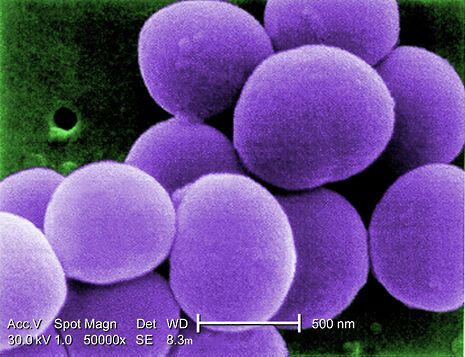Avoiding the super bug era
Rachael Barrett explores the growing problem of antibiotic resistance, and how to avoid amplifying it

According to a report published this Halloween by Public Health England there are 165 new antibiotic resistant infections every day in England, and even scarier is the fact that there were an estimated 61,000 resistant infections in England last year and this number is on an upward trajectory.
You got to give it to them- the bacteria are unbelievably creative and can become resistant in all sorts of nifty ways from switching up the antibiotic target, so it doesn’t work anymore, to actually pumping the antibiotic out of the cell or even attacking it with some bad-ass bacterial biochemistry.
It’s not a fair world. Bacteria can pass around such resistance mechanisms on their genes (between bacterial species even) so any resistance developed could spread worldwide and affect anyone. Whatever your own personal antibiotic use, you’re still at risk of any infection being resistant.
Hence scientists are warning of a post-antibiotic era (and have been for some time now), in which we would effectively be launched back into the medical dark ages: antibiotics are used to treat everything from minor infections to tuberculosis but are also used in caesarean-sections, alongside cancer treatments and after organ transplants. One study by the European Centre for Disease Control already attributes 33,000 deaths in 2015 as a result of antibiotic resistant infections.
There were an estimated 61,000 resistant infections in England last year
Scientists in Cambridge are addressing the problem at a macro-level with teams across departments looking at developing new drugs or identifying new bacterial targets for those drugs- something which has become increasingly unfavourable (read: unprofitable) in Big Pharma companies. Research published in Nature Microbiology this summer from an international research team involving Cambridge scientists Dr Ewan Harrison and Dr Mark Holmes discovered a combination of drugs which could be used to treat MRSA after identifying crucial mutations in a resistance protein.
Fortunately, the combination of drugs they suggest to treat it are already commonly used so don’t have to go through the clinical trial process. This means their re-appropriation in the fight against resistance is within the foreseeable future.
But it’s not all about the whitecoats! In the case of antibiotic resistance, what you can’t see really can hurt you and preventative methods are just as important in stopping the amplification of an already massive problem. Without further ado and in honour of the WHO’s Antimicrobial Resistance Awareness Week last week, I’m here to give you all a quick refresher of the dos and don’ts:
- Don’t get antibiotics for your freshers flu. Antibiotics aren’t the cure for everything, if your doctor doesn’t want to prescribe them there’s a reason. Trust in your immune system, your own personal antibiotic (even if its week 5 and it hasn’t seen vitamin C in a while).
- Do what it says on the packet. You have antibiotics, you have a cut that’s looking a bit purulent or who knows what else - please do what it says on the packet, even if you’re feeling a million times better after a few days. If you don’t you’ve just cleared the competition away for the remaining bacteria and, in the words of Kelly Clarkson, “what doesn’t kill you makes you stronger”.
- Sharing is not caring. Do not reduce, reuse or recycle your antibiotic prescriptions, which brings me nicely on to…
- Disposal? Return them to the pharmacy and they’ll do it for you!
- Reduce risk of infections. Please don’t make me tell you to wash your hands.
On a similar note, I can’t think of a better advert for safe sex than the increasingly global spread of super-gonorrhoea (diagnosed in the UK for the first time this year), alternatively just bring up that fun fact and it’ll surely kill the mood.
Its as simple as that! Five relatively common-sense things everyone can do in the face of antibiotic resistance because superbugs are like climate change, if ignored, sooner rather than later they’ll come back to haunt us.
 News / Cambridge study finds students learn better with notes than AI13 December 2025
News / Cambridge study finds students learn better with notes than AI13 December 2025 Features / Should I stay or should I go? Cambridge students and alumni reflect on how their memories stay with them15 December 2025
Features / Should I stay or should I go? Cambridge students and alumni reflect on how their memories stay with them15 December 2025 News / Uni Scout and Guide Club affirms trans inclusion 12 December 2025
News / Uni Scout and Guide Club affirms trans inclusion 12 December 2025 News / Cambridge Vet School gets lifeline year to stay accredited28 November 2025
News / Cambridge Vet School gets lifeline year to stay accredited28 November 2025 Comment / The magic of an eight-week term15 December 2025
Comment / The magic of an eight-week term15 December 2025








